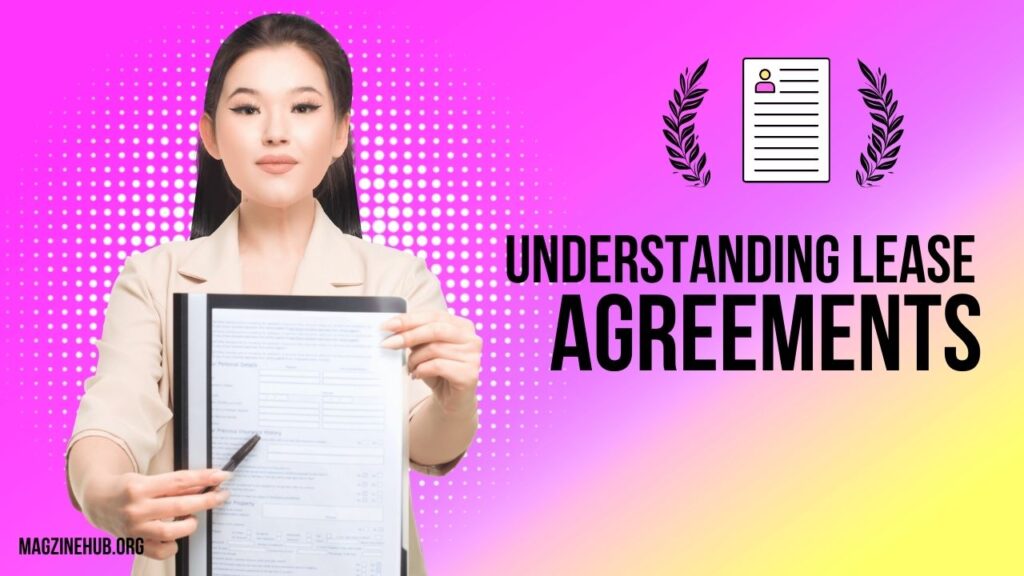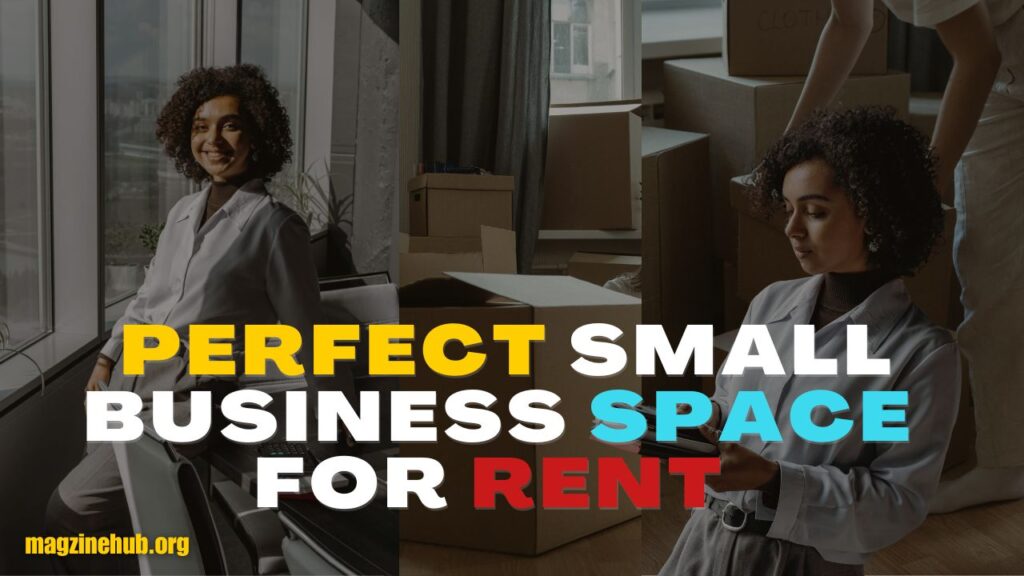Discover everything you need to know about finding the perfect small business space for rent in the USA. From choosing the right location and understanding lease agreements to budgeting and marketing your new space, this comprehensive guide covers all essential aspects to ensure your business thrives.
Table of Contents
Introduction
Finding the right small business space for rent in the USA is a critical step for any entrepreneur looking to establish or expand their operations. The right location can significantly impact your business’s success, affecting everything from foot traffic and accessibility to costs and overall brand image. This guide aims to provide a detailed overview of everything you need to know about renting a small business space in the USA.
The Importance of Location

The location of your business space is crucial for several reasons. It affects your customer base, accessibility, and overall brand image. For instance, a retail store in a busy urban area may attract more walk-in customers than one in a suburban area. Similarly, an office space in a well-connected location can make commuting easier for employees.
Key Considerations for Choosing a Location
- Customer Proximity: Ensure your business is easily accessible to your target customers.
- Competition: Assess the presence of competitors in the area.
- Accessibility: Consider public transport links and parking availability.
- Safety: Choose a safe neighborhood to ensure the well-being of employees and customers.
Types of Small Business Spaces
There are various types of business spaces available for rent, each suited to different business needs.
Retail Spaces
Ideal for businesses that rely on foot traffic, such as boutiques, cafes, and bookstores. These spaces are typically located in shopping malls, downtown areas, or busy streets.
Office Spaces
Suitable for businesses that need a professional setting, such as law firms, tech companies, and consulting agencies. Office spaces can be found in business districts, office parks, or standalone buildings.
Industrial Spaces
Perfect for manufacturing, warehousing, or distribution businesses. These spaces are usually located in industrial zones or business parks.
Shared or Co-working Spaces
An excellent option for startups, freelancers, and small teams. These spaces offer flexible lease terms and a collaborative environment.
Finding Small Business Spaces for Rent
Finding the right space can be challenging, but various resources can help simplify the process.
Online Listings
Websites like LoopNet, Zillow, and Craigslist offer extensive listings of commercial properties for rent. These platforms allow you to filter searches based on location, size, and price.
Real Estate Agents
Hiring a commercial real estate agent can be beneficial. They have access to exclusive listings and can provide valuable insights into market trends and property values.
Local Networking
Networking with other business owners or joining local business associations can lead to potential rental opportunities that may not be advertised publicly.
Property Management Companies
These companies manage various commercial properties and can help match you with a space that fits your needs.
Understanding Lease Agreements

A lease agreement is a legally binding contract between you and the property owner. It’s essential to understand the terms before signing.
Key Elements of a Lease Agreement
- Lease Term: The duration of the lease, typically ranging from one to five years.
- Rent: The amount you’ll pay monthly, along with any annual increases.
- Security Deposit: A refundable deposit held by the landlord to cover potential damages.
- Maintenance: Specifies whether the landlord or tenant is responsible for repairs and maintenance.
- Termination Clause: Conditions under which the lease can be terminated early.
Types of Leases
- Gross Lease: The tenant pays a fixed rent, and the landlord covers all operating expenses.
- Net Lease: The tenant pays base rent plus a share of the property’s operating expenses.
- Percentage Lease: Common in retail, where the tenant pays base rent plus a percentage of sales.
Budgeting for Rental Costs
Renting a business space involves several costs beyond the monthly rent.
Common Costs
- Utilities: Electricity, water, and internet costs are typically borne by the tenant.
- Insurance: Property and liability insurance to protect your business.
- Property Taxes: Some leases require tenants to pay a portion of the property taxes.
- Maintenance and Repairs: Regular upkeep and any necessary repairs.
- Furnishing and Equipment: Costs of setting up your space, including furniture, fixtures, and technology.
Negotiating Lease Terms
Effective negotiation can result in more favorable lease terms, saving you money and providing flexibility.
Tips for Negotiating
- Do Your Research: Understand the local market rates and conditions.
- Hire a Professional: A real estate attorney or broker can provide valuable assistance.
- Be Clear on Your Needs: Clearly communicate your requirements to the landlord.
- Negotiate Rent Increases: Try to limit annual rent increases.
- Ask for Concessions: Request benefits like free parking, utilities included, or a fit-out period.
Legal Considerations
Ensure you comply with all legal requirements when renting a business space.
Zoning Laws
Check local zoning regulations to ensure your business type is permitted in the chosen location.
Permits and Licenses
Obtain all necessary permits and licenses required to operate your business legally.
ADA Compliance
Ensure the property complies with the Americans with Disabilities Act (ADA) to accommodate customers and employees with disabilities.
Moving into Your New Space
Once you’ve secured your lease, the next step is moving in and setting up your business.
Planning the Move
- Create a Timeline: Plan your move to minimize business disruption.
- Hire Professionals: Consider hiring a moving company experienced in commercial relocations.
- Notify Stakeholders: Inform customers, suppliers, and partners of your new address.
Setting Up
- Interior Design: Plan the layout and design of your space to reflect your brand.
- Utilities and Services: Set up essential services like electricity, internet, and phone lines.
- Signage: Install signage to make your business easily identifiable.
Marketing Your New Location
Promote your new location to attract customers and build awareness.
Online Marketing
- Update Your Website: Ensure your website reflects your new address.
- Google My Business: Update your Google My Business profile with the new location.
- Social Media: Announce your move on social media platforms.
Local Marketing
- Flyers and Posters: Distribute flyers and posters in the local area.
- Local Media: Place ads in local newspapers and magazines.
- Grand Opening Event: Host an event to attract customers and create buzz.
Managing Your Space Effectively

Proper management of your business space ensures smooth operations and longevity.
Maintenance and Repairs
- Regular Inspections: Conduct regular inspections to identify and address issues promptly.
- Hire Professionals: Engage professionals for repairs and maintenance to ensure quality work.
Safety and Security
- Security Systems: Install security cameras and alarm systems to protect your property.
- Fire Safety: Ensure your space complies with fire safety regulations and has necessary equipment like extinguishers and alarms.
Space Optimization
- Efficient Layout: Design your space to maximize efficiency and productivity.
- Storage Solutions: Implement effective storage solutions to keep your space organized.
FAQs about Small Business Space for Rent in the USA
What is the average cost of renting a small business space in the USA?
The cost varies widely based on location, size, and type of space. On average, retail spaces can cost $15-$60 per square foot per year, while office spaces range from $10-$50 per square foot per year.
How long should a lease term be for a small business?
Lease terms typically range from one to five years. Shorter terms offer flexibility, while longer terms provide stability and potentially lower rent increases.
Can I negotiate the terms of my lease?
Yes, lease terms are often negotiable. It’s advisable to negotiate aspects such as rent increases, maintenance responsibilities, and termination clauses to suit your business needs.
What are common additional costs associated with renting a business space?
Additional costs may include utilities, insurance, property taxes, maintenance and repairs, and furnishing and equipment expenses.
What should I consider when choosing a location for my business?
Consider factors such as customer proximity, competition, accessibility, and safety when selecting a location.
How do I ensure my business space complies with legal requirements?
Check local zoning laws, obtain necessary permits and licenses, and ensure compliance with the Americans with Disabilities Act (ADA).
What resources are available to find small business spaces for rent?
Utilize online listings, hire a real estate agent, network locally, and contact property management companies to find available spaces.
How can I market my new business location effectively?
Utilize online marketing strategies such as updating your website and social media profiles, and engage in local marketing through flyers, local media, and hosting a grand opening event.
What steps should I take to manage my business space efficiently?
Conduct regular maintenance and repairs, implement security measures, and optimize your space layout and storage solutions for efficiency.
Conclusion
Finding and renting the perfect small business space in the USA involves careful planning, research, and negotiation. By considering location, understanding lease agreements, budgeting for costs, and effectively managing your space, you can set your business up for success. Utilize available resources, comply with legal requirements, and market your new location to attract customers and grow your business
If you’re interested in the latest tech news and articles, visit techsanalysis.com.
